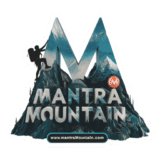## Unlock Affordable Annapurna Trekking: Your Ultimate Budget Nepal Trekking…
📋 Table of Contents
## Unlock Affordable Annapurna Trekking: Your Ultimate Budget Nepal Trekking Guide
Dreaming of soaring Himalayan peaks, lush rhododendron forests, and warm Nepali hospitality, but worried about the cost? Think again! **Annapurna trekking** offers some of the most breathtaking and surprisingly affordable adventures in the world. Nepal, a land of ancient traditions and towering mountains, welcomes trekkers of all budgets.
This **Nepal trekking guide** will show you how to experience the majestic Annapurna region without breaking the bank, sharing essential **budget trekking tips** to make your dream trek a reality.
### Why Annapurna is Perfect for Budget Trekkers
The Annapurna region, home to peaks like Annapurna I (8,091m) and Machapuchare (Fishtail Mountain), is renowned for its well-established teahouse trekking system. This means you don’t need expensive tents, porters, or elaborate camping gear. Instead, you’ll find charming guesthouses (teahouses) along the trails offering basic accommodation and delicious local meals at incredibly reasonable prices.
This infrastructure is the backbone of **affordable Annapurna trekking**, allowing independent and semi-independent trekkers to keep costs down significantly.
### Top Affordable Annapurna Treks
While the Annapurna Base Camp (ABC) trek is a popular choice, several shorter, equally stunning, and more budget-friendly options exist:
1. **Ghorepani Poon Hill Trek:** Often hailed as the best short trek in Nepal, this 4-6 day journey offers panoramic sunrise views over the Annapurna and Dhaulagiri ranges from Poon Hill. It’s relatively easy, incredibly scenic, and perfect for those with limited time and budget.
2. **Mardi Himal Trek:** A newer and less crowded alternative to ABC, this 5-7 day trek leads to a high viewpoint offering close-up views of Machapuchare and Mardi Himal. It’s a fantastic option for a more authentic, off-the-beaten-path experience without a hefty price tag.
3. **Mohare Danda Trek:** An excellent community-based alternative to Poon Hill, offering similar stunning views but with an emphasis on local culture and sustainable tourism. Typically 5-7 days.
### Essential Budget Trekking Tips for Annapurna
Here’s how to shave costs on your Annapurna adventure:
* **Go Teahouse-to-Teahouse:** This is the ultimate budget hack. You’ll pay around $3-7 USD per night for a basic room. The expectation is that you’ll also eat your meals at the teahouse, which is where they make most of their money.
* **Embrace Local Food:** Dal Bhat (rice and lentil soup with vegetables) is your best friend. It’s nutritious, filling, and often comes with free refills! Stick to local Nepali dishes rather than Western imports, which are pricier. Avoid bottled water and opt for filtered or boiled water to refill your reusable bottle.
* **Consider Trekking Independently (or with a Porter):** Hiring a full guide and porter team can add up. For shorter, well-marked treks like Poon Hill, many trekkers go independently. If you need help with your bags, hiring just a local porter (around $20-30 USD/day) is far more economical than a full trekking agency package. This also directly supports local communities.
* **Pack Smart, Rent Gear:** Don’t buy expensive gear you’ll only use once. Kathmandu and Pokhara have numerous shops where you can rent down jackets, sleeping bags, trekking poles, and other equipment at daily rates. Pack light to avoid needing a porter if you’re going solo.
* **Travel by Local Bus:** While tourist buses or flights save time, local buses are significantly cheaper for getting to and from trailheads (e.g., from Pokhara to Nayapul for Poon Hill). Be prepared for a more rugged, but authentic, journey.
* **Purchase Permits Locally:** You’ll need two main permits for **Annapurna trekking**: the ACAP (Annapurna Conservation Area Project) permit and the TIMS (Trekkers’ Information Management System) card. Purchase these yourself at the Nepal Tourism Board offices in Kathmandu or Pokhara. It’s cheaper than having an agency do it.
* **ACAP Permit:** Approx. NPR 3,000 (about $25 USD)
* **TIMS Card:** Approx. NPR 2,000 (about $17 USD) for individual trekkers
* **Bargain (Respectfully):** For souvenirs or some services outside of teahouse food/accommodation (which are generally fixed), gentle bargaining is acceptable in local markets.
* **Carry Enough Cash:** ATMs are scarce on the trails. Plan your expenses and carry sufficient Nepali Rupees (NPR) with you from cities like Kathmandu or Pokhara.
### Best Time for Affordable Trekking
While the peak seasons (Autumn: Sept-Nov and Spring: Mar-May) offer the best weather, they can also see higher prices and more crowds.
* **Shoulder Seasons (Early Dec, Late Feb):** Offer decent weather, fewer crowds, and potentially slightly lower prices for flights or accommodation outside the trekking route.
* **Monsoon (June-Aug):** Cheapest time, but trails are muddy, leeches are prevalent, and views are often obscured.
* **Winter (Jan-Feb):** Very cold at higher altitudes, but quieter and sometimes cheaper. Be prepared for snow.
### Final Thoughts: Your Annapurna Adventure Awaits!
Don’t let perceived costs deter you from experiencing the magic of the Annapurna region. With a little planning and these **budget trekking tips**, you can embark on an unforgettable **Annapurna trekking** journey. From the stunning sunrise at Poon Hill to the serene trails of Mardi Himal, Nepal offers an incredible adventure that is well within reach for the cost-conscious traveler.
So, pack your bags, lace up your boots, and prepare for an epic adventure in the heart of the Himalayas.
—
**Ready to plan your affordable Annapurna adventure? Share your own budget trekking tips in the comments below!**
